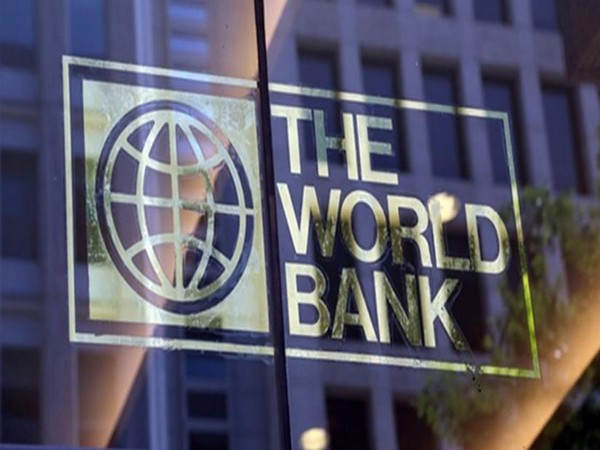Bolormaa Amgaabazar Appointed World Bank Country Director for Pakistan
“The World Bank and Pakistan have a long-standing partnership that has benefited millions of people over generations,” Ms. Amgaabazar said in her official statement.

- Country:
- Pakistan
The World Bank has announced the appointment of Ms. Bolormaa Amgaabazar as its new Country Director for Pakistan, effective July 1, 2025. Ms. Amgaabazar succeeds Mr. Najy Benhassine, under whose leadership the World Bank deepened its development partnership with Pakistan across a wide spectrum of policy and investment priorities.
Ms. Amgaabazar, a Mongolian national, brings over 20 years of experience in international development to her new role. She has served in key leadership positions across the World Bank’s global operations, most recently managing programs in Indonesia and Timor-Leste. Her deep understanding of regional dynamics and her strong track record in development management are expected to drive forward the World Bank’s engagement with Pakistan at a critical juncture in the country’s development journey.
A Deepening Partnership
“The World Bank and Pakistan have a long-standing partnership that has benefited millions of people over generations,” Ms. Amgaabazar said in her official statement. “I am delighted to be appointed the World Bank’s new Country Director for Pakistan. I look forward to deepening our engagement with the federal and provincial governments, local institutions, civil society, the private sector, development partners, and other stakeholders.”
Her appointment comes as Pakistan continues to face pressing development challenges—economic volatility, climate vulnerability, and growing needs in human capital development. The World Bank’s support spans critical sectors, including education, health, energy, climate resilience, and digital transformation, aligning with Pakistan’s broader development goals and reform agenda.
Regional and Global Experience
Ms. Amgaabazar joined the World Bank in 2004 and has served in several regions, including East Asia and the Pacific, Africa, and Eastern Europe and Central Asia. Her diverse assignments have included policy advisory, program design and supervision, and portfolio management for complex development operations. She has managed country offices in Kyrgyz Republic and, most recently, Indonesia and Timor-Leste—both countries with their own unique development trajectories and socio-political complexities.
Prior to her work at the World Bank, she contributed to development initiatives in Mongolia, Indonesia, and Timor-Leste through local and international organizations, focusing on capacity building, community-driven development, and governance.
Continuing the Development Mission
In her new role, Ms. Amgaabazar will lead the World Bank’s strategy and operations in Pakistan, overseeing a large and diverse portfolio currently exceeding $14 billion. The Bank is actively supporting initiatives aimed at reducing poverty, improving public services, enhancing disaster risk management, and strengthening Pakistan’s fiscal and institutional resilience.
“We will continue to support Pakistan to address some of its most acute development challenges including child stunting, learning poverty, its exceptional exposure to the impacts of climate change, and the sustainability of its energy sector,” said Ms. Amgaabazar.
Her leadership is expected to strengthen partnerships across all levels of government and the broader development ecosystem, ensuring the World Bank’s efforts are aligned with Pakistan’s Vision 2025 and the Sustainable Development Goals (SDGs).
Challenges and Opportunities
Pakistan remains one of the largest recipients of World Bank assistance in South Asia. The country has made notable progress in areas such as financial inclusion, digital governance, and infrastructure development. However, significant challenges remain—including poor educational outcomes, undernourishment among children, and widespread climate vulnerabilities such as floods and droughts.
In recent years, the World Bank has been instrumental in helping Pakistan respond to natural disasters, particularly the devastating floods of 2022. It has also supported programs in social protection (e.g., the Ehsaas Program), education reform, clean energy expansion, and fiscal management.
Looking Forward
Ms. Amgaabazar’s appointment signals the World Bank’s continued commitment to building a strong and adaptive development partnership with Pakistan. As the country faces intersecting challenges—from rapid urbanization and demographic shifts to macroeconomic instability and climate pressures—the role of international financial institutions like the World Bank will be pivotal.
Through her leadership, the World Bank aims to promote inclusive growth, equitable access to opportunities, and long-term resilience in Pakistan. Stakeholders from across sectors have welcomed her appointment, expressing optimism for a revitalized push toward sustainable development and regional cooperation.
ALSO READ
INVNT Scales South Asia Presence with Breakthrough Brand Activations, Immersive Storytelling, and Cultural-First Experiences
Italy's Role in Ukraine's Rebuilding: A Call for Global Partnerships
U.S. Restores Funding for Tibetan Aid in South Asia
In South Asia, anaemia threatens women’s health and economic futures
Ventive and Marriott's Strategic Expansion in South Asia: A Game-Changer in Hospitality










